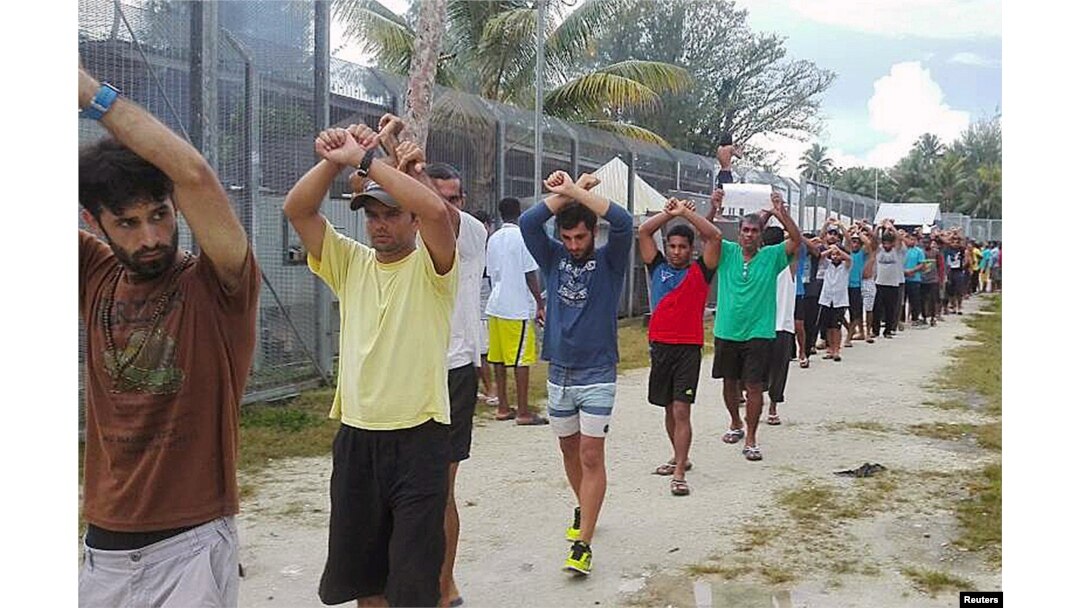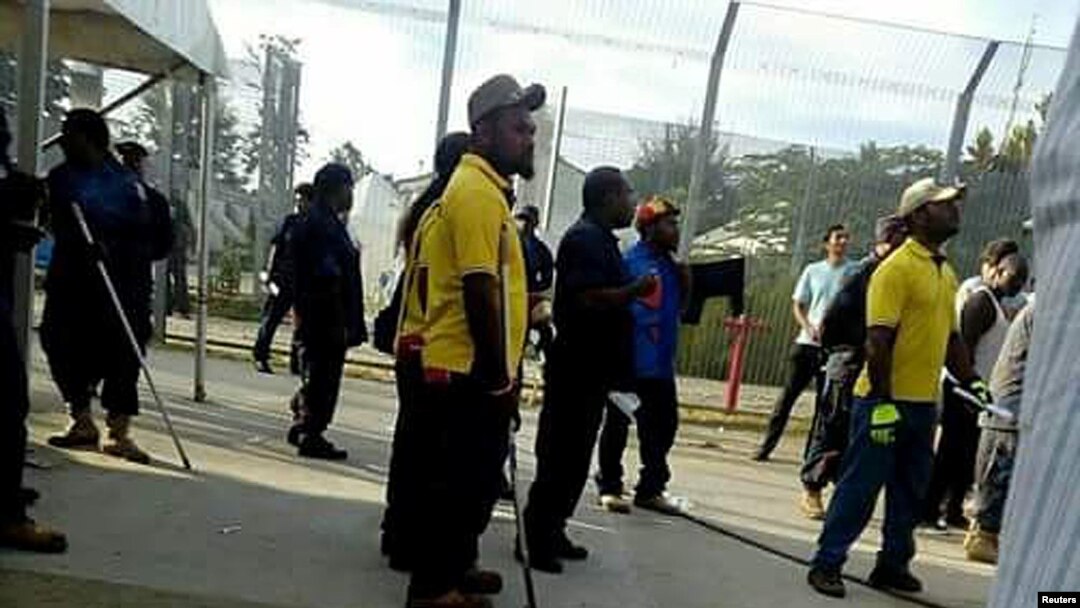Papua New Guinea authorities said Friday they had relocated the last asylum seekers who had refused for three weeks to leave a closed immigration camp for fear they would face violence in the alternative accommodations.
Police Chief Superintendent Dominic Kakas said police and immigration officials removed all 378 men from the male-only camp on Manus Island over two days and took them by bus to residences in the nearby town of Lorengau.
“Everybody’s gone. Everybody got on the buses, they packed their bags and they moved over,” Kakas said.
Refugee advocates say officials used force and destroyed asylum seekers’ belongings to make them leave Manus.
Water, power and food supplies ended when the Manus camp ended officially closed Oct. 31, based on the Papua New Guinea Supreme Court’s ruling last year that Australia’s policy of housing asylum seekers there was unconstitutional. But asylum seekers fear for their safety in Lorengau because of threats from local residents.

FILE - An undated image released Nov. 13, 2017, shows detainees staging a protest inside the compound at the Manus Island detention center in Papua New Guinea.
Australia pleased
Australia pays Papua New Guinea, its nearest neighbor, and the tiny Pacific nation of Nauru to hold thousands of asylum seekers from Africa, the Middle East and Asia who have attempted to reach Australian shores by boat since mid-2013.
Before confirmation that Manus Island had been emptied, Australian Prime Minister Malcolm Turnbull welcomed news that asylum seekers were leaving.
“I’m pleased to say in terms of Manus, that the reports we have are that busloads of the people at Manus are leaving, they’re complying with the lawful directions of the PNG authorities and moving to the alternative facilities available to them and that’s as they should,” Turnbull told reporters.
“That is precisely what you should do, if you’re in a foreign country. You should comply with the laws of that other country,” he added.
Activist protests
Shen Narayanasamy, activist group GetUp’s rights campaigner said in a statement: “I awoke this morning to frantic phone calls from refugees on Manus screaming: ‘Help, help, they are killing us.’ It is astounding that refugees being beaten and dragged out to buses has the support of the Australian government.”
Police maintain no force was used.
Australia will not settle any refugees who try to arrive by boat, a policy that the government says dissuades them from attempting the dangerous ocean crossing from Indonesia. The navy has also been turning back boats to keep them from reaching Australia since July 2014.
The United States has agreed to resettle up to 1,250 of the refugees under a deal struck by former President Barack Obama’s administration that President Donald Trump has reluctantly decided to honor. So far, only 54 have been accepted by the United States.


